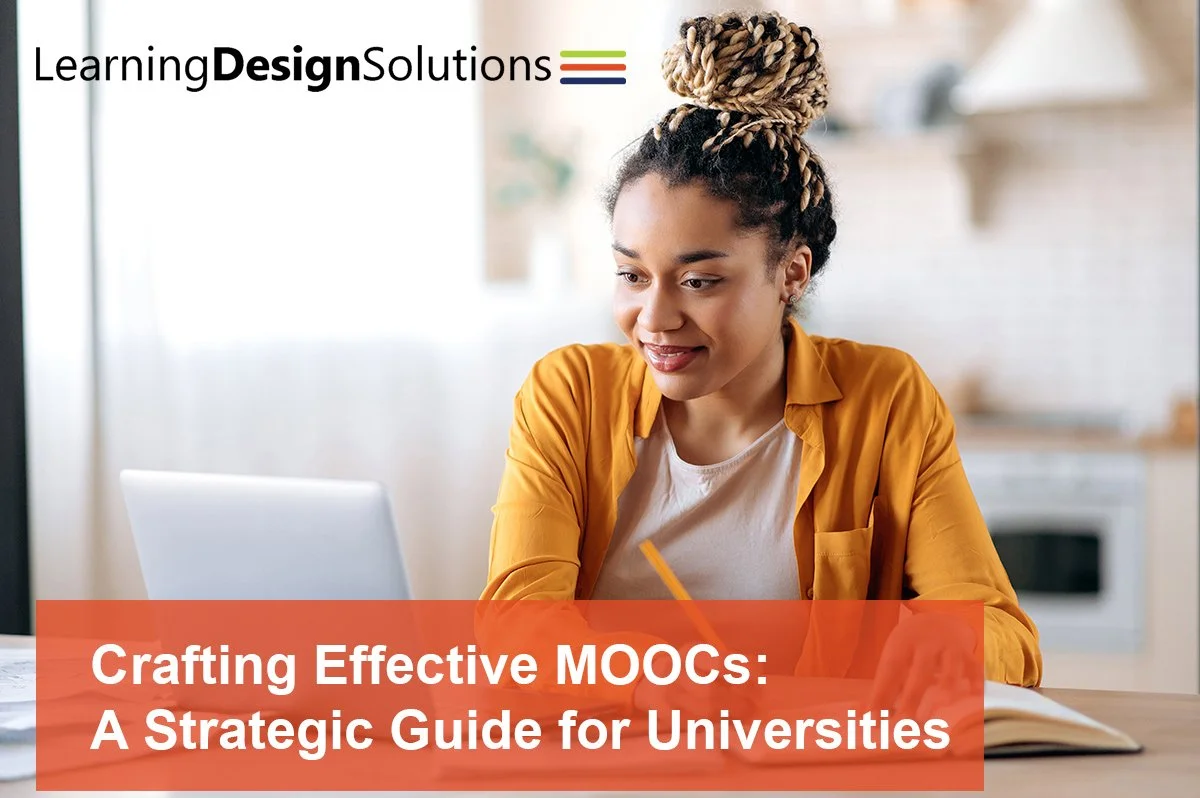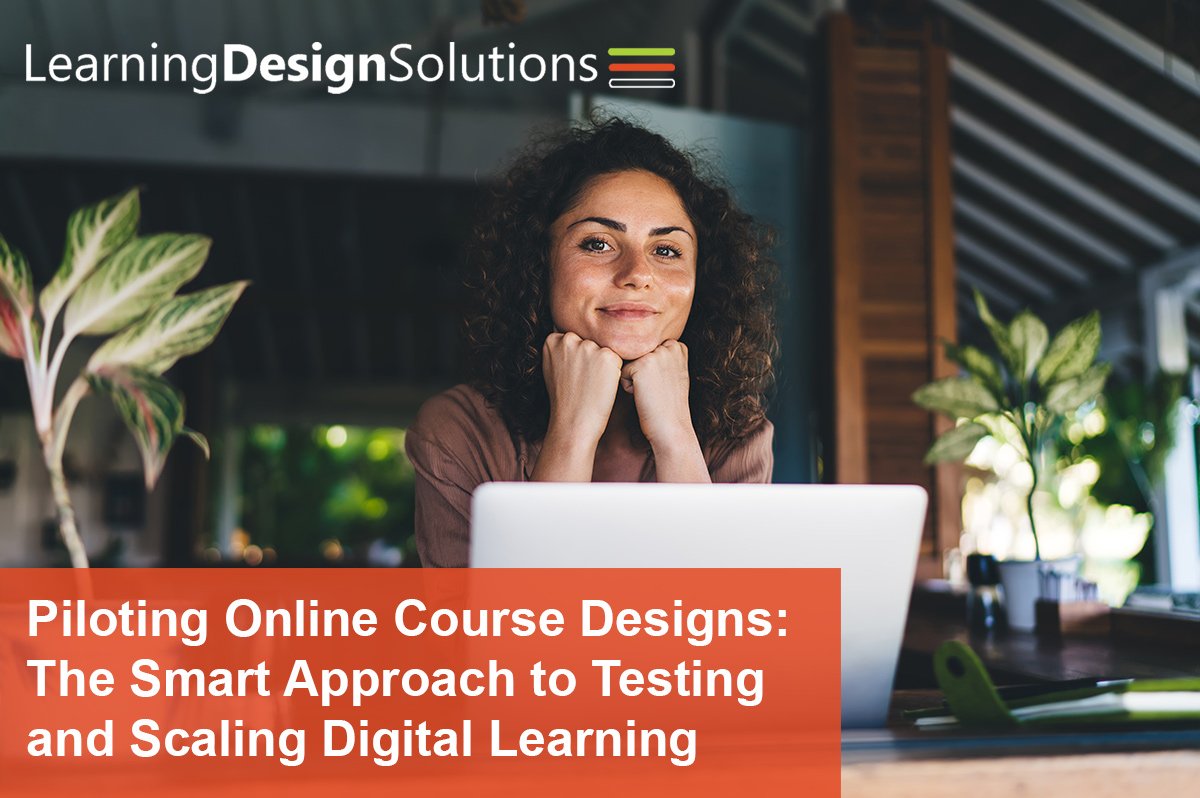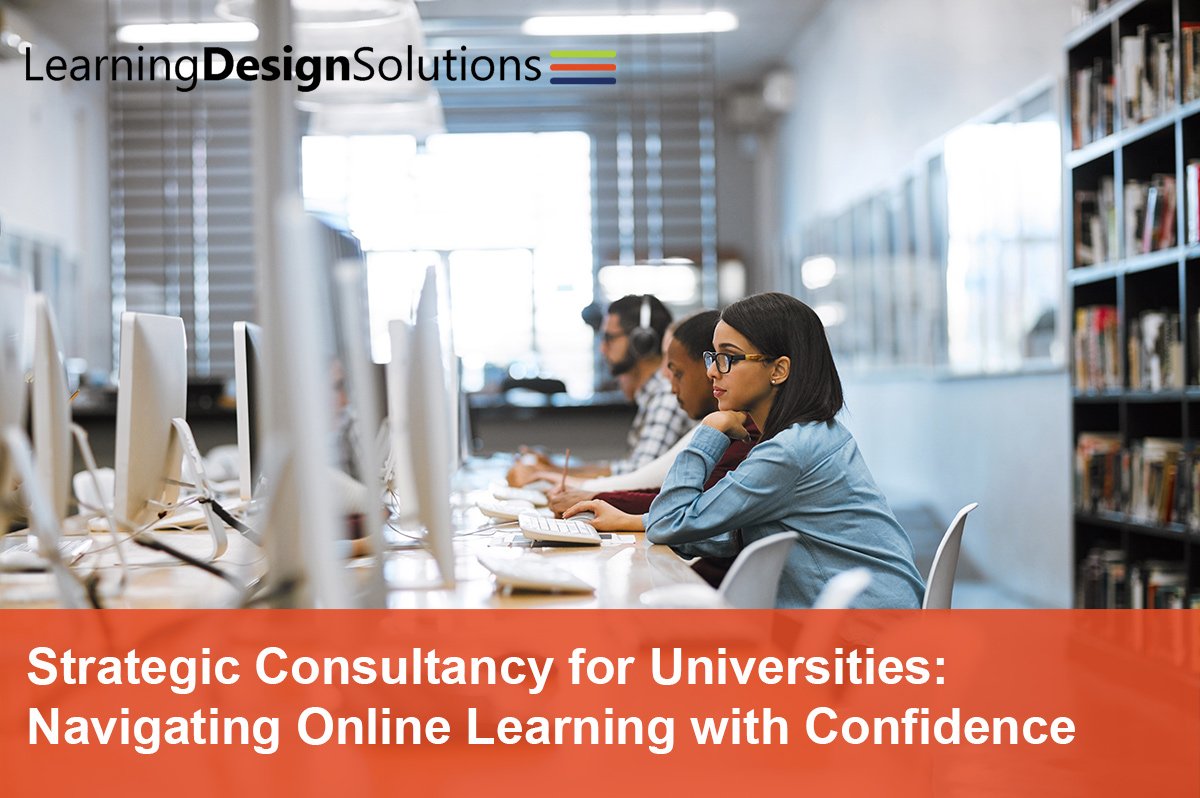Start With Outcomes: How Clear Intent Drives Quality
High-quality online learning rests on one foundational principle: constructive alignment.
Biggs and Tang (2011) describe constructive alignment as the process of ensuring that learning outcomes, assessments, content and learning activities all point in the same direction. Learners construct meaning through carefully designed activities, and those activities must align with the intended outcomes.
At Learning Design Solutions (LDS), constructive alignment is not an abstract theory. It is the bedrock of our design practice. Every stage of planning and authoring is shaped by it. When alignment is strong, the course is coherent, teachable and meaningful. When it isn’t, the quality suffers.
And alignment always begins with clear, purposeful learning outcomes.
Read More
High-Quality Online Learning Isn’t Luck. It’s Design
In a crowded market of online learning providers, it’s easy to find someone who will build a course quickly. It’s even easier to find someone who will build it cheaply.
But finding a partner who will help you shape a compelling educational vision, anchor it in sound pedagogy, and carry that quality through every stage of design and development?
That’s rare.
And that’s exactly where Learning Design Solutions stands out.
Read More
Do online programmes really cannibalise on-campus enrolments?
Why design (and who you aim at) matters more than the mode
Read More
Bonus post: What AI Looks Like in Course Build
A Learning Technologist’s View
Read More
Collaborating with Academics Who Are Unsure About AI
Building trust and confidence in AI-assisted course design
Read More
Prompting as Pedagogical Thinking in Action
How dialogue with AI sharpens design and strengthens outcomes
Read More
AI-Assisted Storyboarding
From Blank Canvas to Structured Journey
In traditional online course development, one of the most time-consuming and cognitively demanding phases is storyboarding — the process of drafting all the on-screen content that will appear in the virtual learning environment (VLE), from micro-lectures to interactive activities.
Read More
Assessment in the Age of AI
How learning designers can rethink assessment for the generative era
Read More
The Three Voices of AI Course Design
How SMEs, Learning Designers, and AI collaborate to build high-quality online learning
Read More
Designing Scenario-Based Learning at Scale – With AI as Your Co-Author
How generative tools are helping us build richer, more authentic learning experiences without burning out our team
Read More
Redesigning Online Learning with AI
This post shares what we learned when we deliberately designed a demo course — Principles of Responsible Management — using a GPT-based AI assistant trained in our own pedagogical approach. Our aim was to test whether AI could support a structured, theoretically grounded design process suitable for UK higher education at postgraduate level. And what we found was that it didn’t just help us start — it helped us start well and keep going.
Read More
An OPM Decision Framework for Universities
Universities across the UK are under increasing pressure to grow digital provision—fast. But while the ambition is there, the implementation is often where things fall down. Questions crop up like:
Do we have the internal expertise to design and deliver high-quality online courses?
Can we scale recruitment and student support without an OPM’s infrastructure?
What’s the cost difference between doing it all ourselves vs. outsourcing some parts?
How do we avoid building an internal model that becomes unmanageable or underused?
This framework helps answer those questions by providing a structure to assess your institution’s readiness, capabilities, and priorities.
Read More
Unlocking the Potential of Micro-Credentials: A Strategic Guide for Universities
Higher education is evolving rapidly, and micro-credentials are at the forefront of this transformation. Designed to provide flexible, skills-focused, and stackable learning, micro-credentials allow universities to engage a wider audience, align with industry needs, and support lifelong learning.
For university leaders—deans, pro-vice chancellors, heads of learning, programme directors, and course developers—the question is no longer if micro-credentials should be introduced, but how to do so effectively.
Read More
Building World-Class Online Degree Programmes: A Strategic Guide for Universities
As universities expand their digital offerings, end-to-end online degree programme development has become a critical priority. Whether launching a single online programme or rolling out multiple new programmes, institutions must balance strategic planning, pedagogical excellence, learner engagement, and scalability.
At Learning Design Solutions (LDS), we specialise in helping universities create high-quality, market-driven, and globally accessible online degree programmes. Our expertise spans from strategic planning and programme visioning to full-scale course development, media production, and learning experience design.
Read More
Crafting Effective MOOCs: A Strategic Guide for Universities
In the evolving landscape of higher education, Massive Open Online Courses (MOOCs) have emerged as a pivotal tool for universities aiming to extend their reach and showcase their academic excellence. However, developing a successful MOOC requires meticulous planning and a deep understanding of both the chosen platform and the institution's unique identity. At Learning Design Solutions (LDS), we partner with universities to navigate this complex process, ensuring that each MOOC is both pedagogically sound and reflective of the institution's brand.
Read More
Piloting Online Course Designs: The Smart Approach to Testing and Scaling Digital Learning
Developing an effective online course or degree programme is a significant investment, requiring careful planning and strategic decision-making. Before committing resources to a full-scale rollout, universities and educational institutions can benefit from piloting their course designs—a critical step that allows for real-world testing, refinement, and validation of digital learning strategies.
Read More
Strategic Consultancy for Universities: Navigating Online Learning with Confidence
As universities expand their online and digital education offerings, many face challenges in strategy, scalability, and faculty readiness. Moving to fully online, hybrid, or modular learning models requires more than just content digitisation—it demands strategic foresight, strong pedagogical frameworks, and sustainable implementation plans.
At Learning Design Solutions (LDS), we offer expert consultancy services to help universities design, develop, and implement online programmes successfully.
Read More
Transforming Chartered Education: A Blueprint for Effective Online Learning
The professional education landscape is evolving rapidly, and chartered institutions must adapt to stay ahead. Transitioning professional qualifications, CPD programmes, and training courses to online learning is no longer optional—it’s essential. A digital-first approach ensures greater accessibility, engagement, and scalability, but without the right strategy, institutions risk diminishing the effectiveness of their teaching.
At Learning Design Solutions, we specialise in guiding chartered bodies through this transformation, ensuring that online learning maintains the rigour, interactivity, and high-quality standards expected from professional education.
Read More
Human vs AI Video for Online Courses
By experimenting with creating both human (me) and AI (Synthesia) presented video for the Learning Design Solutions demo course, I’ve found that both have definite pros and cons, and ultimately both can be the most appropriate approach depending on the context - aren’t we lucky to have the choice! Here I lay out my experience and what I’ve learned about when to use either (or both).
Read More
Embracing AI in Course Design – Insights from Creating the ‘Principles of Responsible Management’ Course
In an exciting new project at Learning Design Solutions, we embarked on a journey to harness AI for designing a fully online, university-level course titled Principles of Responsible Management. This course, aimed at Master’s students, spanned four weeks and was structured for 5 UK academic credits (CAT points), equating to about 50 hours of student engagement. With AI at the core of the design process, we aimed not only to streamline the course development timeline but to uphold robust educational standards rooted in learning science and sound pedagogy. Here, I’d like to share some reflections on the process and what we learned along the way.
Read More




















